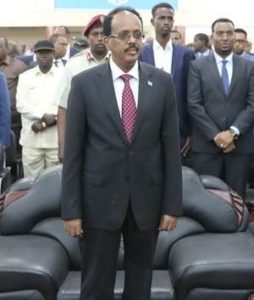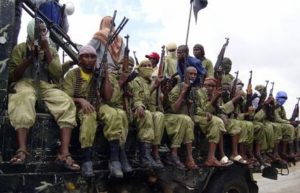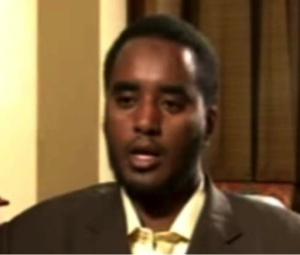Editor’s Note: To gauge the opinion of President Farmajo’s government after “one year in office”. WardheerNews tasked our senior contributor’s to analyze and evaluate the Government of the Federal Republic of Somalia’s performance on a range of issues and categories that includes leadership, good governance, national security, foreign policies, public financial management, combating corruptions, and mismanagement. We also asked to evaluate whether President Mohamed Abdullahi Farmaajo kept his campaign promises. WardheerNews is pleased to present part I of the report card.
________
Farmajo: Highlights of some of his ups and downs
By Osman Hassan
President Mohamed Abdullaahi Farmajo’s election on February 8, 2017, sparked unprecedented instantaneous jubilations and euphoria among dispirited Somali-speaking peoples inside Somalia and around the world long used to hearing only bad news from Somalia. As they saw it, he was the only man among the presidential candidates who could potentially fulfill their burning yearning for the restoration of the unity, sovereignty, dignity and power of the failed State.

Fulfilling such expectations are Herculean tasks for any leader and more so in the case of the Somalia context where the State has to be reconstituted from its ashes. Much as he has no magic wand to fix the ailing state, it is still in order to ask what progress (or regression) towards these goals has taken place under Farmajo’s leadership.
The dignity and integrity, which the president wields at home, are indispensable for his mark at home and on the international stage. Farmajo’s approach to the office of the President is in many ways akin to that of Somalia’s first President, Aden Abdalla Osman: for better or worse, he chose to remain head of State but otherwise leave the running of the country to his Prime Minister. In this regard, Farmajo’s tangible achievement was to restore the dignity of the Office whose holders until then were by and large unpopular and despised as lackeys for other countries. Backed by the overwhelming support of his people, he wasted no time to stand up for Somalia’s sovereignty against foreign governments hitherto used to see Somalia as a vassal state and exploit it as they saw fit.
Despite his success with some countries, he seems to have little or none with others, above all Ethiopia. Undeterred and bent on derailing Somalia’s revival, it still exploits the weaknesses of the State it contributed to bring down from its pedestal. With obsequious federal state leaders at its sway and Somaliland in its pocket, it is in many ways, and openly, the final arbiter in Somalia’s regional affairs with Farmajo and his government powerless and reduced to mere passive spectators. For lack of better options, patience and building Somalia seem to be his main card in the knowledge that the nation will ultimately triumph over Ethiopia when it gets back to its feet. Towards this end, he would need among other things a foreign ministry that effectively deals with foreign relations. This office has been failing the country and will continue to do so as long as mediocre Ministers and ambassadors are (as elsewhere in the government) chosen along the cursed 4.5 criteria with little regard for competence or experience.
In the meantime, Farmajo’s presidential style of his distance from the day-to-day affairs of the government, or giving Fahad Yasin, his chief of staff free rein to run his office and government, might suit stable developed countries with long history of well-functioning institutions but is a extremely risky double-edged sword in the case of Somalia. Almost all those running the country in one capacity or other are new to their jobs, lack experience and competency and therefore would need the necessary oversight when appropriate from higher offices. That applies most to the office of the president whose functioning or malfunctioning would have detrimental consequences for the mission the president has set himself.
The restoration of Somalia’s unity, in particular the need to deal actively with the secession, is the conspicuous shortcoming of Farmajo’s one year in office. Except on special national days, when the usual support for the unity of Somalia is reiterated out of duty, the President has otherwise balked at dealing with this issue. This silence is a betrayal for those defending the union at great cost to them and on the other hand an encouragement, willy-nilly, to the secessionists. These perceptions are reinforced by his recent visit to Puntland in which he chose not set foot anywhere in Sool or Sanaag – just a stones’ throw away from his routes. It is as if to do so is to illegally cross an international border into a foreign country, willingly or unwittingly recognizing Somaliland claims to such a border. The message his action gives is that Sool and Sanaag are not part of Somalia, which presumably stands only for the former Italian part.
If Farmajo is serious about the unity of Somalia, he would need to heed the advice of the former President of Puntland, Mohamed Abdi Hashi, who in an article in Wardheernews called on the federal government to endorse the right of the SSC regions to become a State Member of Somalia. If acted upon, that would sound the death knell of the secession. If he fails to heed this advice, the breakup of Somalia could happen under his watch.
————-
Al-Shabaab: The Big Elephant in the Room
By Hassan M Abukar
It was a good year. It was a bad year. It was a year of lofty promises. It was a year of letdowns. It was a year of high expectations. It was a year of dashed hopes. In summary, it was a typical Somali political period: a year rife with contradictions.
President Farmajo made big promises when he came to power. For one, he promised to eradicate al-Shabaab within two years. He called for the National Security Council to draw up a security plan in which every federated state would send 3,000 soldiers to Mogadishu, and all armed and security forces in the country would be united under one command and control. Moreover, the president extended a 60-day amnesty to al-Shabaab members while at the same time issuing a historic, tough decree prohibiting Mogadishu businesses from paying extortion money to the radical group.

Al-Shabaab welcomed the new, popular president with an unprecedented barrage of bombings and terrorist acts. The group then seemed to take periodic breaks from violence until October 14, when Mogadishu was hit with the deadliest bombing in Somali history. More than 400 innocent lives perished, and 600 people were wounded. Ironically, al-Shabaab failed to take responsibility for this heinous crime. Since then, there have been fewer deadly attacks by the terror group, providing a period of relative peace. However, like the film Jaws, the shark always attacks during periods of serenity and peace.
While Mogadishu is relatively more peaceful today than the past, the government has been plagued with a string of resignations and firings in the top echelon of the armed forces, the national police and security sector, disappointing setbacks in completing follow-up actions for the security plans, and a lack of funds, not to mention a weakening of the full support it used to get from the United States and the European Union. Oddly, there has been a growing murmur of discontent within the U.S. government and the European Union in propping up a weak and inefficient Somali federal government. In the midst of these political tensions, there is the familiar, sinister presence of al-Shabaab.
————
The fleeting hopeful celebration
Dr. Ali Bahar
If you thought the hopeful celebration of February 8, 2017, have short lived, you are not alone. All the euphoria and the cheerful support Farmajo has received did not materialize, and there is nothing reminiscent of leadership about Farmajo’s administration to celebrate in February 8, 2018.
Out of the gates, Farmajo’s failure started with the selection of his prime minister and his over-sized cabinet. The Prime Minister Hassan Ali Kheyre, a) had no government experiences, b) has been accused of having secret ties with Al-Shabaab, c) had dubious oil dealings with a corrupt British company, and d) reported to having ties with corrupted Gulf countries, whose purpose has been to sabotage any progress to normalcy Somalia made.
Today, it is the Somali people who are disappointed with their president and government. The fresh air of hope and aspiration have soon ended, sadly it was followed by bemusement and mishaps. The promise to bring peace and unity to the country, something many Somalis have been yearning for decades has yielded nothing worth savoring.

Farmajo was accorded with appreciable trust and support of the Somali people, but he failed to cash in and deliver on that mandate; all was proven to be a wishful thinking on the part of the public who were looking for something different, even if unreal and untested like Farmajo to deliver. He does not have the government experiences, nor the leadership quality to meet the task ahead.
Vision defines forward movements, but Farmajo does not have a vision to shape the future of Somalia and the Somali people, and things went down the hill from bad to worse. Instability, political turmoil, internal conflict and lack of security, remain under the watchful eye of President Farmajo. He let others, such as Fahad Yasin, his chief of staff and Prime Minister Kheyre run villa Somalia. He relented to them to lead and make the critical decisions. Call it imprudence and the lack of leadership on his part.
Today, national sovereignty and territorial integrity is something of the past. Farmajo’s administration has even done the unthinkable, spying for our enemy Ethiopia and sending Somali citizens across the border to Ethiopia. Today, the rogue Somaliland is exerting its occupation strategy, willy-nilly, and vowed to aggressively start a war in Sanaag and Sool, the regions who have chosen to remain part of the dream that Somali unity may miraculously re-emerge one day.
Where is Farmajo? His indifference to the vital needs of his people clearly demonstrates that he is a man who does not have the leadership qualities and ready to lead Somalia at this critical point of history. He is in total disarray! and has yet to show emotional intelligence, which the Somali people mistakenly thought he had. He is a total failure!
__________
Farmajo’s Failed Policies and Dithering Leadership
By Adan Makina
The task of a great leader is to get his people from where they are to where they have not been. . . . Leaders must invoke an alchemy of great vision. Those leaders who do not are ultimately judged failures, even though they may be popular at the moment. Henry Kissinger
There has been much hype and jubilation when Mohamed Abdullahi Mohamed, won the Presidential race on 8 February 2017 after garnering 184 votes out of 328 in a Federal voting system. However the political performance of the President plummeted instantaneously for failing to deliver the necessary basic essential services such as clean water, health services, peace and security to the general population. The first and foremost responsibility of any leader is to secure the country and that remains to be seen. Likewise, his projected repatriation of Diaspora Somalis with the intent to rejuvenate the national economy as enshrined in his Tayo Political Party’s (TPP) manifesto has failed to become an actual fact.
One year into his presidency, the man who is popularly known as “Farmajo” woke up to a strong expression of public disapproval from Somalis of all walks of life–an indication of discontentment with his national policy formulations and a grand failure in his handling of foreign policy issues. Leaving Fahad Yasin, his financial controller and Chief of Staff to run the country without being accountable to anyone will obviously open the doors to the horrors of prebendalism, authoritarianism, favoritisms, and a host of political ills that could eventually pave the way for abrupt government collapse. It’s no wonder why lugubrious Somalis have taken to the social media to lament his distorted Modus operandi.
Despite obtaining a master’s degree in Political Science from a prestigious university in the US and in spite of having assortments of work experiences as a result of his exposure to national and international institutions, Farmajo has not been up to task bringing Somalia back into the political arena. What the president fails to grasp is that–their nomadic lifestyles aside–Somalis are naturally farsighted, attentive to national and international events and are well informed of what transpires not only in his own backyard, but even in his closed-door official functions.
Going by the old adage “walls have ears”, Somalis who have been historical tabloids since historical antiquity for their adeptness at disseminating information possess a natural gift at diffusing facts and figures among themselves. Since it’s no secret Villa Somalia (Presidential Palace) lacks confidentiality and secrecy of state operations because of the syndicated amalgamation of neophytes, no doubt the rot in leadership will continue to pilfer to undermine his already tainted leadership style.
Leadership is about inculcating diversity, injecting a sense of inspiration, enthusiasm, optimism, and commitment and bringing change. Through hard work and determination and want of success, leaders act as role models by preparing followers for the long road to prosperity. Leaders are known for organizational reorientation, structural changes, meeting goals and deadlines. To be able to influence others.
President Farmajo’s leadership manifestation remains murky and indefinable. He neither personifies a Servant Leader nor embodies Transactional or Transformational technique that is the distinctive feature of developed nations. Farmajo’s political failure is akin to the sick man, who, after marvellous struggles, fails to gain convalescence from a debilitating disease because of the innumerable number of unqualified advisors and counsellors jostling to deliver Brobdingnagian prescriptions.
Farmajo One-Year Review: Part II will follow soon.
WardheerNews
We welcome the submission of all articles for possible publication on WardheerNews.com. WardheerNews will only consider articles sent exclusively. Please email your article today . Opinions expressed in this article are those of the author and do not necessarily reflect the views of WardheerNews.
WardheerNew’s tolerance platform is engaging with diversity of opinion, political ideology and self-expression. Tolerance is a necessary ingredient for creativity and civility.Tolerance fuels tenacity and audacity.
WardheerNews waxay tixgelin gaara siinaysaa maqaaladaha sida gaarka ah loogu soo diro ee aan lagu daabicin goobo kale. Maqaalkani wuxuu ka turjumayaa aragtida Qoraaga loomana fasiran karo tan WardheerNews.
Copyright © 2024 WardheerNews, All rights reserved


